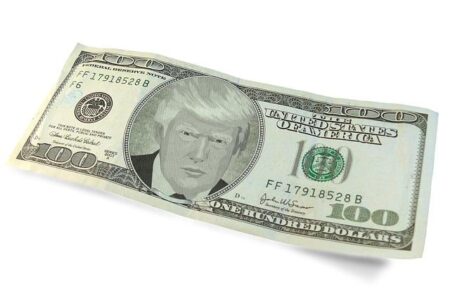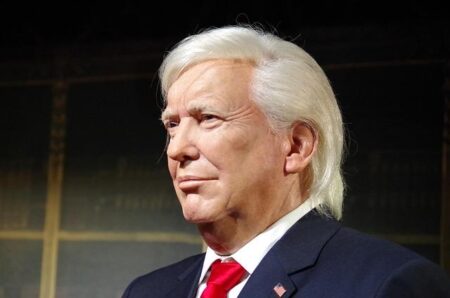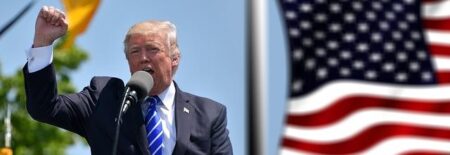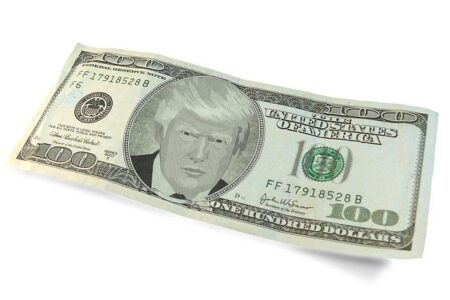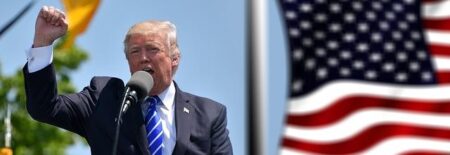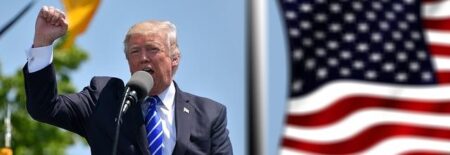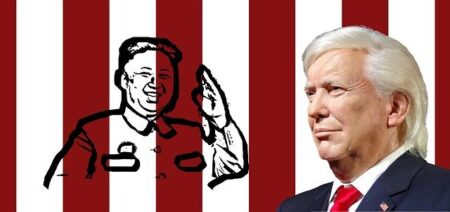Former President Trump and Chinese President Xi Jinping took part in a tense, high-stakes conversation as China delivered a sharp warning to the U.S. over arms sales to Taiwan-underscoring escalating tensions in the region, Bloomberg reports
Browsing: US-China relations
China is boldly challenging the U.S.’ leadership in pharmaceutical manufacturing as the Trump administration shakes up research policies. This dramatic shift sparks worries about America’s future grip on drug-making supremacy
Former President Trump has issued a striking warning to Canada, threatening to slap 100% tariffs over its trade agreement with China. He warned sharply, “China will eat Canada alive.” This bold stance escalates the already fierce tensions in the ongoing US-China trade war
Tensions over Taiwan are escalating rapidly as global powers urge calm and careful diplomacy. Experts emphasize that no nation desires conflict with China, underscoring the critical importance of dialogue to protect peace and stability in the region
Trump’s protectionist trade policies, aimed at shielding U.S. industries, have unexpectedly paved the way for China to expand its global market share-while American businesses struggle with soaring costs and restricted access
As President Trump turns his attention to Greenland amid rising tensions with China, experts express skepticism about the US’s ability to effectively challenge Beijing’s expanding influence in the Arctic and beyond, according to Bloomberg sources
Former President Trump makes a surprising pivot, openly inviting Chinese electric vehicles into the U.S. market with the bold declaration, “Let China come in.” This marks a striking shift in his stance amid the fierce competition heating up in the EV industry
Exclusive: Sources tell Reuters that China’s customs agents have been directed to block Nvidia’s H200 chips from entering the country, signaling a sharp escalation in tech export controls amid mounting US-China tensions
The US has just given the green light for Nvidia to export its groundbreaking H200 chips to China, lifting previous restrictions. This move signals a major shift in tech trade policies amid ongoing geopolitical tensions, Reuters reports
Chinese Foreign Minister vehemently denounces US military strikes on Venezuela, branding them a blatant violation of international law and a serious threat to Venezuela’s sovereignty, reports the Global Times
Former President Trump has made a powerful move by signing a defense bill that prohibits China-based engineers from participating in Pentagon IT projects, underscoring critical national security risks. This bold decision aims to safeguard against potential cyber threats from foreign technology experts
Senator Marco Rubio takes a surprising new direction in US-China relations, trading his usual hawkish stance for a more diplomatic tone in a year-end move aimed at easing tensions and paving the way for meaningful dialogue
A fierce showdown is unfolding over Trump’s decision to block AI chip sales to China. Supporters hail it as a vital move to protect national security, while critics warn it could spark economic chaos and strain US-China tech relations
Former President Donald Trump is charting an ambitious new course toward great power cooperation, emphasizing the vital need to forge strong alliances with China and Russia. This strategy marks a dramatic departure from previous U.S. policies that focused on rivalry and confrontation
China is preparing to restrict access to Nvidia’s state-of-the-art H200 AI chips, even after recent export approvals were granted under the Trump administration, Reuters reports. This development underscores the ongoing tensions in US-China technology relations
The U.S. has reportedly hit the pause button on plans to sanction a Chinese spy agency, all to safeguard the fragile trade truce, according to sources cited by the Financial Times. This strategic move aims to keep tensions from boiling over during these delicate negotiations, Reuters reveals
Former President Trump is reportedly considering allowing sales of Nvidia’s latest, most advanced chips to China, according to sources from Bloomberg News. This potential move could dramatically reshape the tech landscape between the U.S. and China amid rising tensions
Tensions are skyrocketing as China and Japan intensify their fierce rivalry over trade and security, with former President Trump’s policies igniting an already volatile geopolitical fire. This mounting conflict is setting the stage for a high-stakes showdown that could redefine the future of the Asia-Pacific region
China’s Xi Jinping recently held a significant conversation with former US President Donald Trump about Taiwan’s future, underscoring Beijing’s unwavering stance amid rising tensions in the Taiwan Strait, The Guardian reports
Former President Donald Trump announced his intention to visit Beijing this April following a “very good” phone call with Chinese President Xi Jinping, signaling a potential thaw in U.S.-China relations, The Independent reports

